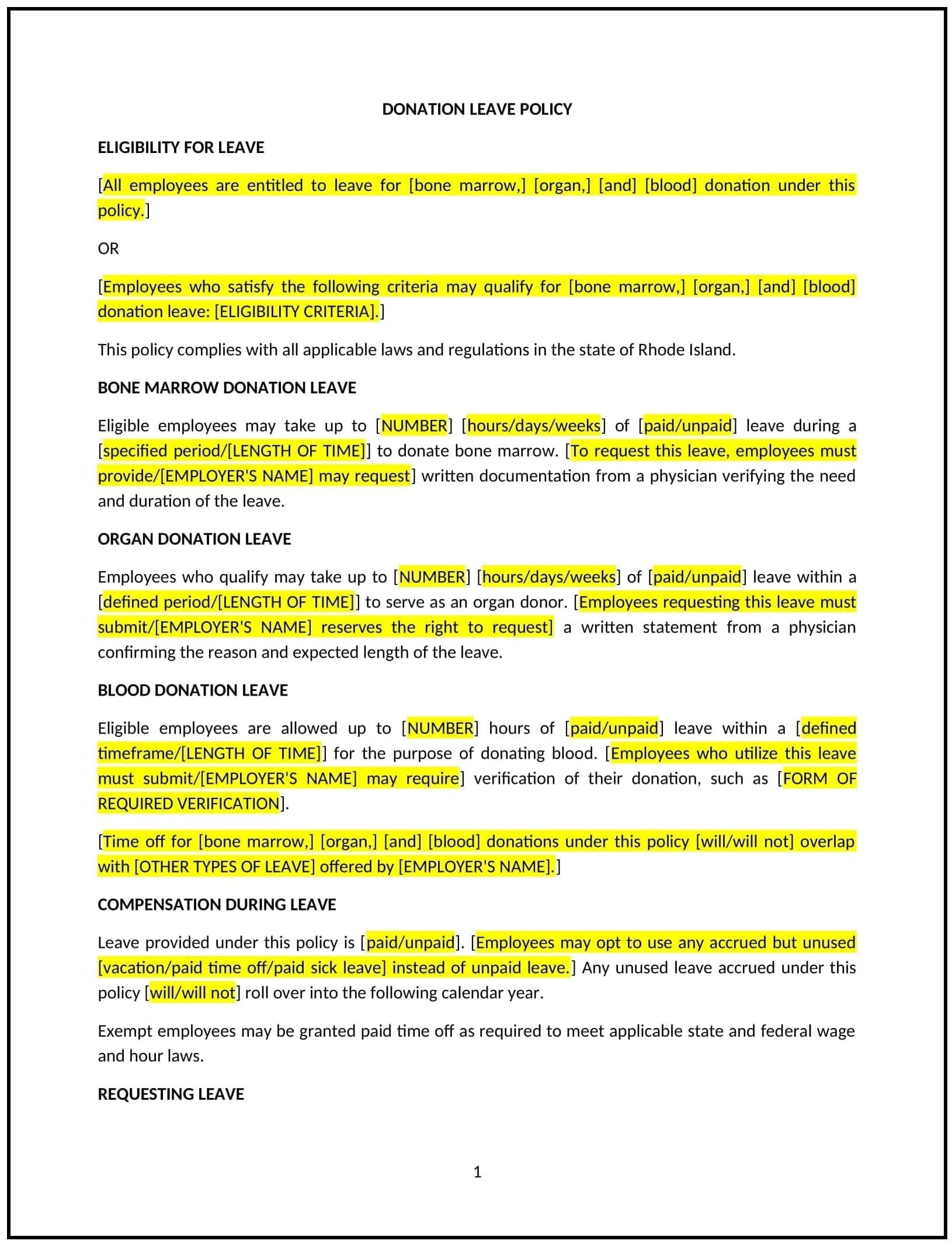Donation leave policy (Rhode Island): Free template
Got contracts to review? While you're here for policies, let Cobrief make contract review effortless—start your free review now.

Customize this template for free
Donation leave policy (Rhode Island)
This donation leave policy is designed to help Rhode Island businesses support employees who wish to donate blood, organs, or bone marrow. It outlines procedures for requesting leave, eligibility criteria, and job protection during leave.
By adopting this policy, businesses can promote community engagement, support employee well-being, and align with best practices for leave management.
How to use this donation leave policy (Rhode Island)
- Define donation leave: Explain what constitutes donation leave, such as blood, organ, or bone marrow donation.
- Establish eligibility: Specify which employees are eligible for donation leave and any requirements.
- Set request procedures: Provide steps for employees to request donation leave, including required notice and approvals.
- Address job protection: Guarantee that employees will return to the same or an equivalent position after leave.
- Train managers: Educate supervisors on handling donation leave requests and maintaining workflow during employee absences.
- Review and update: Assess the policy annually to ensure it aligns with evolving business needs and employee expectations.
Benefits of using this donation leave policy (Rhode Island)
This policy offers several advantages for Rhode Island businesses:
- Promotes community engagement: Encourages employees to contribute to life-saving efforts.
- Supports employee well-being: Demonstrates a commitment to employees’ health and altruistic goals.
- Enhances employee satisfaction: Provides paid or unpaid leave, boosting morale and retention.
- Aligns with best practices: Offers a structured approach to managing donation leave.
- Builds trust: Shows employees that the business values their contributions to the community.
Tips for using this donation leave policy (Rhode Island)
- Communicate the policy: Share the policy with employees and include it in the employee handbook.
- Provide training: Educate managers on handling donation leave requests and maintaining workflow during employee absences.
- Monitor compliance: Regularly review donation leave requests to ensure adherence to the policy.
- Address issues promptly: Take corrective action if donation leave requests are mishandled or denied improperly.
- Update regularly: Assess the policy annually to ensure it aligns with evolving business needs and employee expectations.